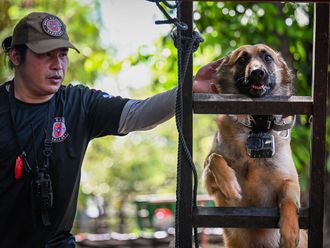Manila: Agusan del Sur wants possession of the stuffed world’s largest saltwater crocodile currently on display at the National Museum in Manila, saying that the reptile rightfully belongs to the people of the province.
According to Nonoc Plaza, regional information of Agusan del Sur, residents of the Southern Philippines’ province is asking the National Museum to turn over the stuffed reptile, referred to as “Lolong,” back to the province where it was caught in the marshlands in 2011.
At 6.17-metres, Lolong holds the official Guinness record for the biggest saltwater crocodile in captivity. A team of trappers had snared the humungous 1,075 kilogrammes reptile in September 2011.
Captured alive, Lolong was placed in a pen in Bunawan but later on died in Feb. 10, 2013 due to the stress of captivity.
Reports quoted Plaza as saying that the National Museum had conducted an examination on the carcass of Lolong brought it to Manila to have it processed by a taxidermist for preservation.
But several years after, the National Museum had yet to return Lolong to its home province in Agusan del Sur.
A formal request addressed to the National Museum had been sent by the provincial board of Agusan del Sur for Lolong’s return.
The stuffed reptile is one of the star attractions at the National Museum.
“The residents of the province, as well as the entire Caraga Region, are dismayed that Lolong hasn’t been returned to us,” Plaza said.
Before Lolong died, visitors would flock to Bunawan to see the world’s largest living saltwater crocodile.
The crocodile was so named in honour of the Ernesto “Lolong” Coñate who led the team of wildlife experts who tracked down and set up traps for the reptile.
Coñate died from an illness days before the crocodile was captured.
Sometime in 2011, reports of a huge crocodile prowling the marshlands of Bunawan and preying on local livestock as well as fatal attacks on a school girl and fisherman had prompted Coñate to track down and trap Lolong.
According to experts of the Palawan Wildlife Rescue and Conservation Center (PWRCC) crocodile attacks in the Philippines in general, are rare, but habitat disturbance is causing an increase in the incidences.
They said that crocodiles do not normally attack humans but they are aggressive when they think that another creature is intruding into their territory.












